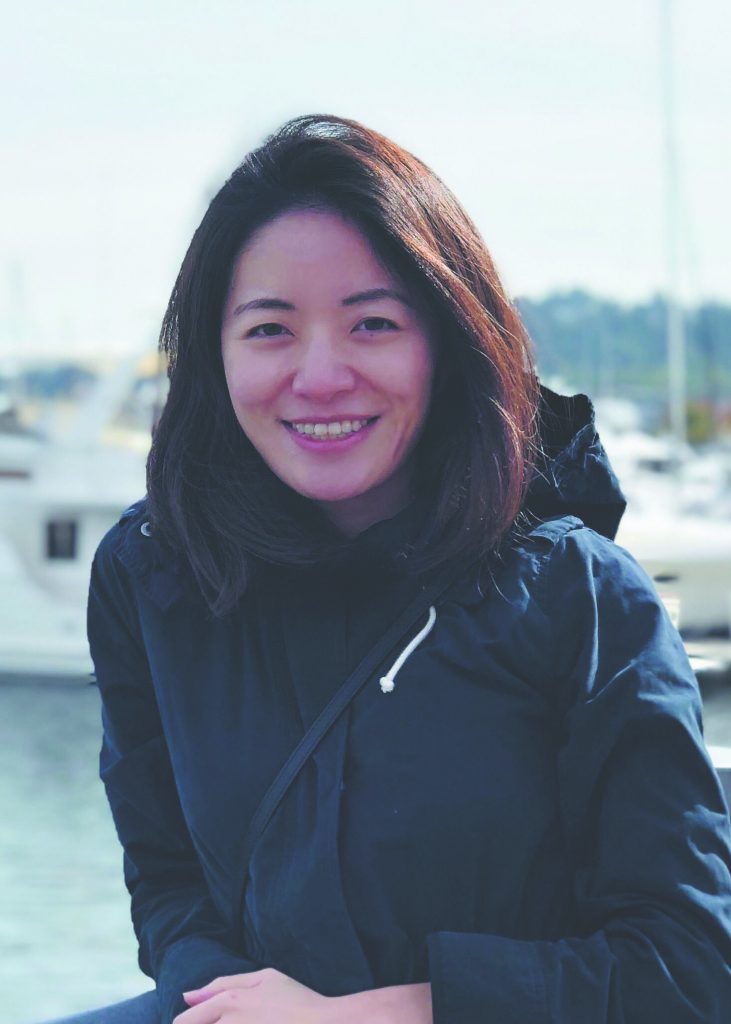Teacher Spotlight: Meet professor Yi Jenny Xiao!
Dr. Yi Jenny Xiao is an assistant professor of psychology at UW Tacoma. Dr. Xiao is a new faculty member and came to UWT in fall 2018. She enjoys all of the courses she teaches, ranging from Social Psychology to her Fundamental Methods of Psychological Research class. Dr. Xiao took some time to tell the Ledger about her academic background, challenges as a professor, hobbies and her advice to students.
Q: Where did you attend college as an Undergraduate and Graduate student?
A: I went to Bard College — a small liberal arts college in New York — for my undergrad. I
entered college planning to major in Biology. I took an Introduction to Psychology
course during my first semester, and fell in love with psychology! I ended up graduating
with [a] double major in Biology and Psychology. After [my] undergrad, I went straight to a Ph.D program in Social Psychology at New York University.
Q: How did you decide on your field of study? What drew you to the subject?
A: I knew very little about what psychology was really about before college. I went to high
school in China where psychology was not one of the subjects regularly taught. I was
very fortunate to have amazing professors and role models in college. I got to work
closely with a mentor, who is a social psychologist by training, and she had a lot of
impact on my academic path. This is also why I have always aspired to be a mentor and
role model for my own students. When I was in college, I was very interested in both
cognitive and social psychology, and was able to find a way to synthesize the two sub-
disciplines in my work.
Q: When did you decide that you wanted to be a professor?
A: Ever since I was little, I would tell others I wanted to be a teacher! I probably didn’t
realize what it really meant to be a professor, but I’ve always been interested in
education. I started seriously thinking about working towards becoming a professor
when I was in college after learning a bit more about what it means to do research and
what it means to work in academia. One thing that attracted me to UWT was the diverse students I get to work with here. I very much appreciate the diverse backgrounds, identities and ideas students bring to the campus here.
Q: What classes do you teach here at UW Tacoma? Which ones do you most enjoy teaching?
A: I am currently teaching Social Psychology and both of the courses in the Fundamental
Methods of Psychological Research sequence. This is my first year at UWT, and I
certainly hope to offer more courses in my area of expertise [in] the future. I have previously
offered courses on Stereotyping, Prejudice & Discrimination, Attitudes & Social
Influence, etc … It’s hard to say which ones I enjoy teaching the most. These courses are
all very different in terms of the topics, structure, challenges and I appreciate having
the opportunity to offer all of them!
Q: What do you like best about teaching at UWT?
A: It is a fulfilling and humbling experience teaching at UWT. Students here have a lot of
significant responsibilities — family, jobs, etc. — outside school, more than anywhere else I
have previously taught. I am impressed by the level of motivation, commitment and
perseverance of our students.
Q: What is the hardest part of being a professor?
A: Balancing teaching, research, [and] other responsibilities with the limited amount of time and
energy I have! As a relatively new faculty member, I’m also trying to be better at setting
boundaries and having a better work-life balance. As a professor, it’s easy to be working
or thinking about work all the time.
Q: What advice can you offer undergraduate students?
A: Take more initiative of your educational journey. Your professors and advisors are a
great resource and will be there to guide you through this journey, but ultimately, you
are crafting your journey and experience here. Instead of seeing your courses as courses you need to pass and get good grades in — these are certainly important! — be more mindful of the process of learning, and not just the outcome. Think about how your knowledge and skills will transfer, and how your education can contribute to what you hope to accomplish after you graduate.
Q: What do you like to do when you are not teaching? What are some of your hobbies?
A: I like art a lot! I enjoy visiting art museums, and seeing music and dance performances.
Now I spend a lot of time with my young daughter when I’m not working. I’m trying to get
outdoors more since moving to the Pacific Northwest. I had not been a particularly
outdoorsy person, but I’m hoping this culture will grow on me!
Fun Facts:
- Dr. Xiao’s first language was Mandarin Chinese.
- Her favorite park is Bryant Park in New York.
- While she doesn’t play any sports, her favorite sport to watch is tennis.


